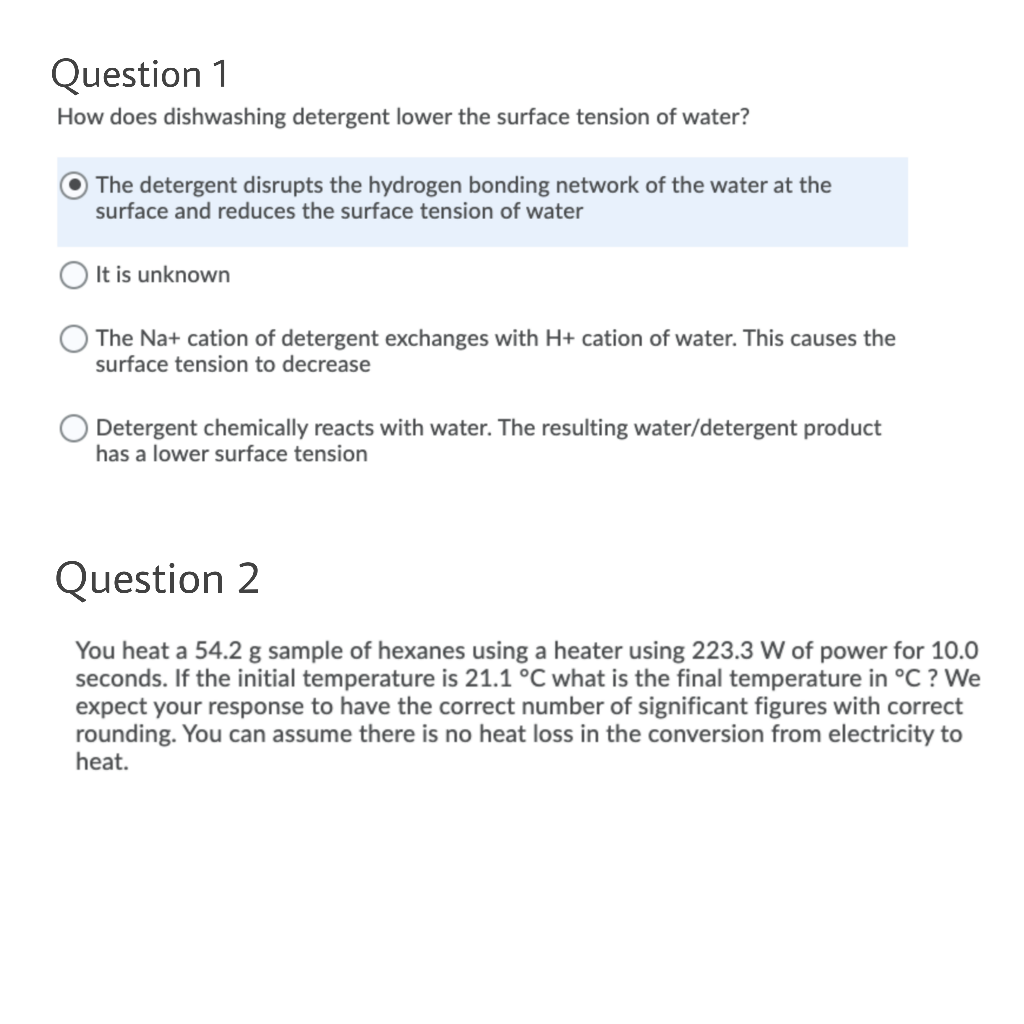Question 1 How does dishwashing detergent lower the surface tension of water? The detergent disrupts the hydrogen bonding network of the water at the surface and reduces the surface tension of water It is unknown The Na+ cation of detergent exchanges with H+ cation of water. This causes the surface tension to decrease
States of Matter
The substance that constitutes everything in the universe is known as matter. Matter comprises atoms which in turn are composed of electrons, protons, and neutrons. Different atoms combine together to give rise to molecules that act as a foundation for all kinds of substances. There are five states of matter based on their energies of attraction, namely solid, liquid, gases, plasma, and BEC (Bose-Einstein condensates).
Chemical Reactions and Equations
When a chemical species is transformed into another chemical species it is said to have undergone a chemical reaction. It consists of breaking existing bonds and forming new bonds by changing the position of electrons. These reactions are best explained using a chemical equation.

Trending now
This is a popular solution!
Step by step
Solved in 2 steps









